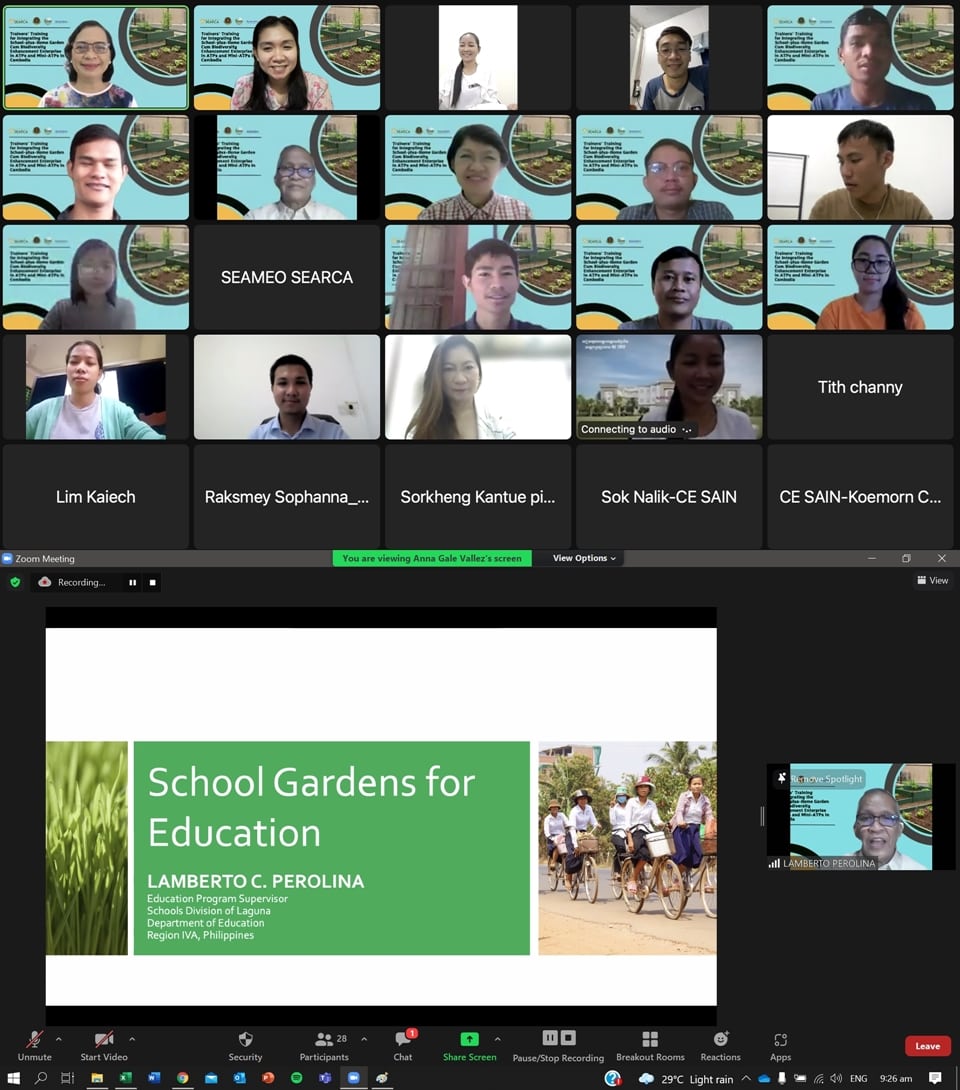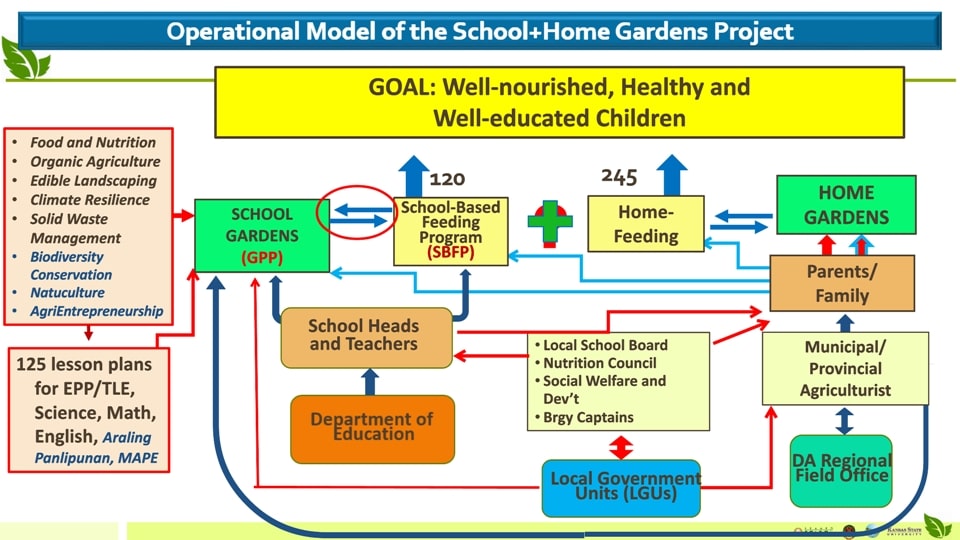The e-training titled, Trainers’ Training for Integrating the School-plus-Home Gardens cum Biodiversity Enhancement Enterprise (SHGBEE) in the Establishment of Agricultural Technology Parks (ATPs) and Mini-ATPs in Cambodia, conducted its 8th and 9th session on 16 and 23 February 2022, respectively, via the Zoom platform. The learning event is an ongoing training program organized and implemented by the Southeast Asian Regional Center for Graduate Study and Research in Agriculture (SEARCA) and the Center of Excellence on Sustainable Agricultural Intensification and Nutrition (CE SAIN), in partnership with the Kansas State University (KSU) and the University of the Philippines Los Banos (UPLB).
The integration of school garden programs into educational curriculum may serve as an experiential learning tool of students in schools. This was the focus of Session 8 led by Mr. Lamberto C. Perolina, Education Program Supervisor from the Schools Division of Laguna, Philippines, Deparment of Education (DepEd). In his lecture, he discussed the teaching and learning process, educational curriculum in the Philippines, Most Essential Learning Competencies (MELCs), and integrating school gardens in lesson plans. Mr. Perolina highlighted the strategies for integration of school gardens which include project study, field study, and demonstration. Coupled with creativity, critical thinking, adaptability, and collaboration, the mentioned that the strategies shall be an effective learning methods if incorporated into the classroom setting. Further, he mentioned that localizing school garden in education curriculum through hands-on activities will result in knowledge with practice.
 Participants and organizers of (top) and Mr. Lamberto C. Perolina (bottom) discussing the topic for Session 8.
Participants and organizers of (top) and Mr. Lamberto C. Perolina (bottom) discussing the topic for Session 8.
On the other hand, Session 9 featured Sustainable Development Goals (SDGs) related to the school-plus-home gardens project (S+HGP). This was facilitated by Dr. Blesilda M. Calub, University Researcher from the Agricultural Systems Institute, UPLB. Her discussion revolved around participatory approaches in development programs and school team visioning and strategic planning. She also presented the operational model of the S+HGP which shows the complementation strategy among DepEd, local givernment units (LGUs), and the Department of Agriculture (DA) Regional Offices towards achieving the goal of well-nourished, healthy, and well-educated children.
 Participants and organizers of Session 9.
Participants and organizers of Session 9.
 Operational Model of the S+HGP presented by Dr. Calub.
Operational Model of the S+HGP presented by Dr. Calub.
The lectures were followed by the workshops on integrating S+HGP concepts in the high school curriculum in several subjects including Biology, Chemistry, English, Mathematics, and Life Skills and the development of strategic SWOT analysis of their school gardens, respectively. The strategic SWOT focused on strategies to build on the strengths and opportunities and to overcome the weaknesses and threats to ensure the success of SHGBEE in their school and community.
The sessions concluded by presenting the reflection and synthesis of the participants. On Session 8, they identified knowledge, simplicity of the plan, skills, organizational support, and cooperation as the factors that will help them easily integrate the SHGBEE concepts in their lesson plan. Meanwhile, some challenges they expect to encounter in the integration were the lack of participation of the students and teachers, budget, limited time, and lack of experience. Moreover, on Session 9, the participants generally plan to develop capacity building and action and strategy plan to create concrete plan for school garden activities.
This capacity development initiative generally aims to boost the capacity of teachers and local government offices of the target schools for the ATPs and mini-ATPs in Cambodia. It will run until 2 March 2022.